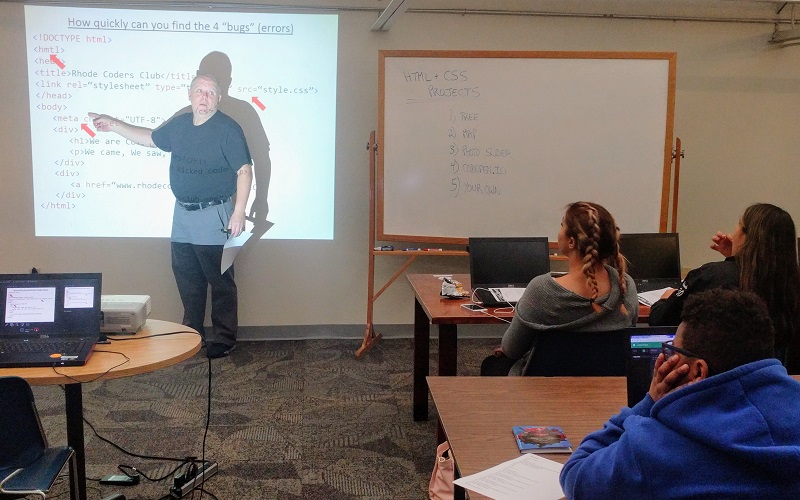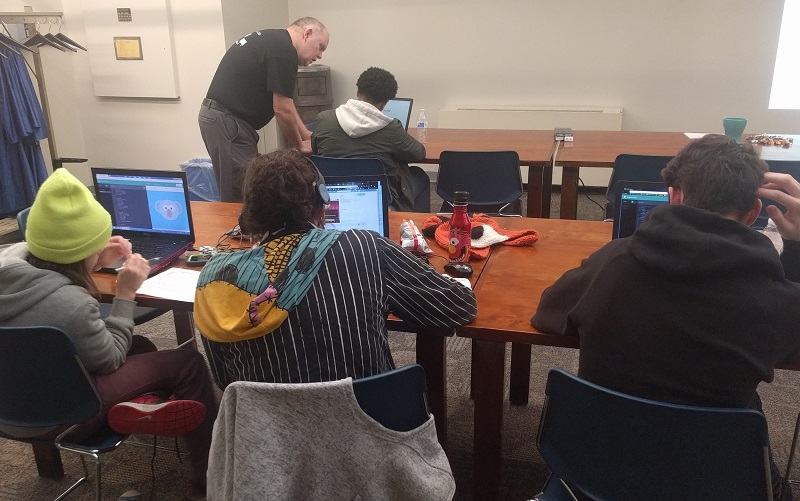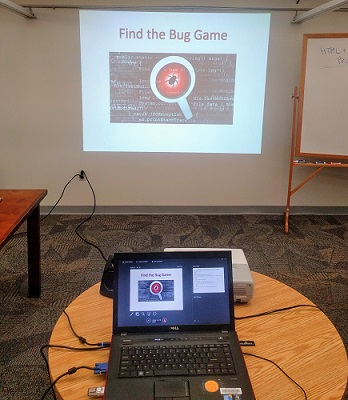Blog Posts | March 6, 2017
Share ThisBy Kate Aubin
Providence Public Library
Editor’s Note: In honor of Teen Tech Week 2017, IMLS is spotlighting in a series of blogs five recent projects that we’ve supported which demonstrate how libraries are leveraging technology in service of teens across the nation.
As a former high school teacher, having recently joined the Providence Public Library’s (PPL) Teen Workforce Development IMLS project, I’m quickly seeing the positive effects of and need for our year-round teen programming.

According to a report by Bentley University, young people are not obtaining the hard and soft skills traditionally obtained through formal schooling that are necessary to succeed in an increasingly competitive workforce. This is a problem around the country, but one that we feel acutely in Rhode Island, where 70 percent of future jobs will require degrees or certifications that fewer than 45 percent of residents have, according to the Rhode Island Department of Education (RIDE). That’s why PPL decided to make workforce development the focus of our youth programming.

One of our programs is Rhode Coders 2.0, an adapted version of our adult computer coding class aimed at youth. According to Fast Company, there were close to “7 million job openings in 2015 in occupations that required coding skills” and “programming jobs overall are growing 12 percent faster than the market average.” Rhode Coders 2.0 provides a foundation in web development skills to students with no or some previous coding experience. Over twelve weeks, youth in grades 7-12 learn HTML, CSS, programming fundamentals, and core Javascript, using a fun and game-oriented approach. Our technology instructor Don Gregory blends Codecademy.com lessons with Mozilla Web Literacy activities in a face-to-face setting. College and career readiness “power skills” of communication, collaboration, self-management, problem solving and critical thinking are also a focus. At the end of the course, youth are able to use what they’ve learned to build their own personalized website and video game.

Additionally, students in grades 9-12 are eligible to receive high school course credit through the Advanced Coursework Network (ACN) Initiative, a partnership between community-based organizations that serve youth, higher education institutes around the state, and the Rhode Island Department of Education. This partnership has been a great vehicle for PPL to go into schools and share our library’s teen programming offerings directly with youth.
We’ve found that youth have many reasons for participating in Rhode Coders 2.0 beyond course credit. One student is taking our course because she intends to pursue a degree in graphic design. The university she is planning to attend told her that learning to code would be a useful tool for her chosen field. Another student became interested in the course because his mentor through the Big Brother program is taking our adult coding class.
Personally, I am learning to code along with the teens to better serve the educational needs of our library patrons and for my own professional development. I’m proud to have our public library providing these critical services in our community. We will soon expand Rhode Coders to another public library system in Rhode Island and are looking forward to rolling out our Teen Squad: Culinary Arts program and a tourism and hospitality industry focused “My City, My Place” digital playlist this spring - all avenues for helping teens build their workforce development skills.
About the Author
Kate Aubin is the Community Partnerships & Engagement Coordinator at the Providence Public Library. She can be reached at kaubin@provlib.org
.
